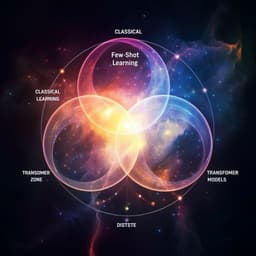
Interdisciplinary Studies
Going beyond the AHA! moment: insight discovery for transdisciplinary research and learning
B. J. Pearce, L. Deutsch, et al.
This groundbreaking research by BinBin J. Pearce, Lisa Deutsch, Patricia Fry, Francesco Femi Marafatto, and Jenny Lieu unveils 'insight discovery' as a vital skill for addressing urgent societal and environmental challenges. It presents a comprehensive framework for fostering insights through collaborative and structured learning processes, making it essential for transdisciplinary education.
Playback language: English
Related Publications
Explore these studies to deepen your understanding of the subject.







